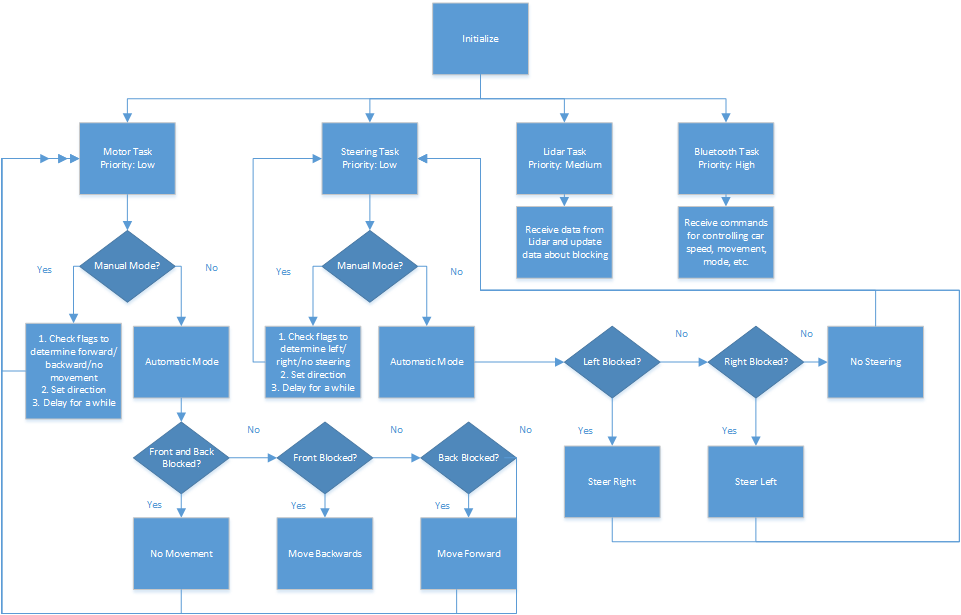Difference between revisions of "F14: Collision Avoidance Car"
From Embedded Systems Learning Academy
Proj user8 (talk | contribs) (→System Integration) |
Proj user8 (talk | contribs) (→Abstract) |
||
| Line 1: | Line 1: | ||
==Collision Avoidance Car== | ==Collision Avoidance Car== | ||
==Abstract== | ==Abstract== | ||
| − | The inspiration behind the Collision Avoidance Car comes from the state-of-the-art field of self-driving cars.All major automotive companies are investing heavily in autonomous car technology. One of the more prominent autonomous cars being developed is the Google Car, which features lidar and photo-imaging technology to implement autonomy. The goal of the self-driving car is to reduce gridlock, eliminate traffic fatalities, and most importantly, to eliminate the monotony of driving. | + | The inspiration behind the Collision Avoidance Car comes from the state-of-the-art field of self-driving cars. All major automotive companies are investing heavily in autonomous car technology. One of the more prominent autonomous cars being developed is the Google Car, which features lidar and photo-imaging technology to implement autonomy. The goal of the self-driving car is to reduce gridlock, eliminate traffic fatalities, and most importantly, to eliminate the monotony of driving. |
==Objective & Scope== | ==Objective & Scope== | ||
Revision as of 23:55, 20 December 2014
Contents
Collision Avoidance Car
Abstract
The inspiration behind the Collision Avoidance Car comes from the state-of-the-art field of self-driving cars. All major automotive companies are investing heavily in autonomous car technology. One of the more prominent autonomous cars being developed is the Google Car, which features lidar and photo-imaging technology to implement autonomy. The goal of the self-driving car is to reduce gridlock, eliminate traffic fatalities, and most importantly, to eliminate the monotony of driving.
